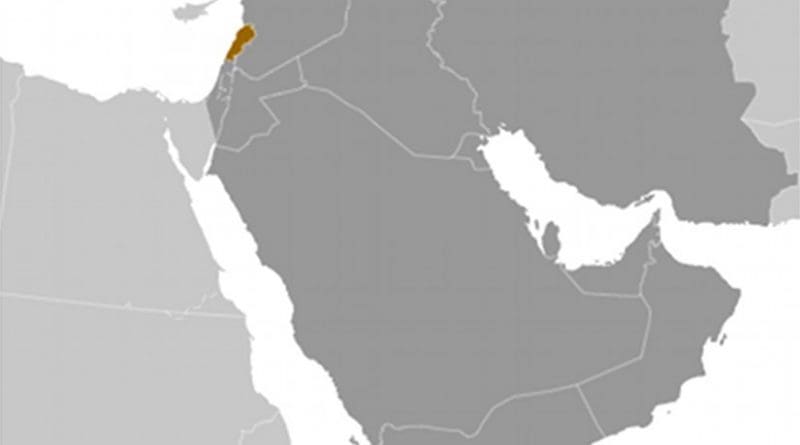Syrian Families Seek Refuge In Lebanon’s Northern Villages
By Dana Ballout and Dalal Mawad
Haje Fatmeh can hardly speak or walk. At 80 years old, fleeing her hometown in Syria and crossing into Lebanon on foot is a disheartening task. Thursday at dawn, she escaped the Syrian village of Talkalakh. Accompanied by her two granddaughters, they are seeking refuge at their relative’s home in Machta Hammoud, Wadi Khaled – a northern Lebanese village just across the border.
In what seems to be the beginning of a wave of Syrian families seeking refuge from the increasingly violent clashes in Syria, some families have begun relocating across the border into neighboring Lebanese villages.
The Wadi Khaled region in Lebanon, and Talkilakh in southern Syria, both consisting of majority Sunni residents, are divided only by a thin river and unintimidating barbed wire. Villages are close, both in proximity and in socio-economic ties. Family ties and frequent interactions are common between the villages as employment opportunities often require the men of Talkalakh and Wadi Khaled to cross into each other’s borders on a daily basis.
Today, only the women and children are able to cross into Lebanon, after violent clashes have erupted due to anti-regime protests in Syria. While the men remain in Syria to protect their homes, wives, sisters, mothers, and children are living across the border in anxiety, wondering when will be the next time they meet.
“We left Syria out of fear of the situation, but mainly for the children. They are traumatized from the sounds of gunshots, reports of deaths, and watching tanks driving into the streets”, says Hajje Aisha. “It is not safe for us to stay there as armed men are breaking into homes every day”. She is a grandmother of eight who fled Talkalakh in the early morning hours on Thursday to her sister’s home in Mashta Hammoud.
Her grandchildren gripped to her chair, listening as she spoke. Their eyes reflected fear and anxiety. One of her granddaughters, Joumana aged 13, began to weep as she recalls playing at her cousin’s house when suddenly she heard gunshots. As Joumana hid her face in her sister’s arms, her tears were mimicked by her grandmother, who began mumbling “May God protect her father, may God protect my son”.
While Haje Aisha and her grandchildren were able to cross into Lebanon with relative ease, others are not so daring and not as lucky.
Iman Sheikh, a Lebanese from Machta Hammoud is currently hosting ten members of her mother’s family who, unlike most refugees, came from Hama. Iman claims her relatives walked long distances before they were able to find a car to drive them to the border. “Many of other relatives are too scared to leave their homes, walk on the streets, or even speak on the phone”, she adds.
In fact, fear of being outspoken is a prevailing feeling amongst the Syrian families. In one house, three women refused to talk or even show their faces. Others simply refused to give full names or take pictures.
Few Syrians openly expressed political opinions and instead, sat quietly listening to their Lebanese friends and relatives who chose to speak on their behalf, sometimes whispering sentences into their ear for them to say out loud.
Hussayna, a young Syrian woman busied herself with coffee while listening silently as her grandmother spoke of reservations towards the Syrian regime, but stopped suddenly to whisper in her ear. “She wants to tell you that they brought back the bodies of a killed general and murdered soldiers to Talkalakh yesterday”, said her grandmother, repeating Hussayna’s words. After much hesitation, Hussayna added “and may the system fall, as well”.
Her aunt Ibtisam, bluntly spoke of her opposition to the Syrian regime. “Although we are sad about the violence, we would still like the demonstrations to carry on, but in a peaceful manner. We want the regime to change”.
When asked about an alternative to President Bashar Al Assad and his regime, one woman yelled “whatever the people want, we will follow. We want a democracy”. Other women explained that they rarely follow politics and are not interested in the technicalities of political reform as long as it improves the increasingly expensive living costs and high unemployment rates.
Mashta Hammoud’s head of municipality, Naji Ramadan, was busy on the phone arranging for an ambulance to transport a sick Syrian women from Talkalakh in Syria to a hospital in Halba, Akkar. “It is getting worst by the day. Although many families returned to Syria this week, if the situation continues, more families will be fleeing into Lebanon.”
The question however, lies in whether Mashta Hammoud and its neighboring villages will be able to cope with a heavy influx of refugees. While most of the current Syrian families are taking refuge in their relatives’ homes, they are hardly equipped with sufficient space or resources.
With at least 250,000 Palestinian refugees living in Lebanon, most of whom are deprived of basic human rights, and thousands of Iraqi refugees receiving insufficient attention and care, Lebanon is hardly capable of coping with its current refugee populations, much less new ones. If the violence in Syria continues, or even increases, an influx of Syrian refugees into Lebanon is inevitable. While all of the Syrian families repeatedly expressed gratitude for the hospitality the Lebanese have shown them this week, both the Syrian refugees and their Lebanese hosts know that hospitality can only go so far before proper shelter, care, and protection for these incoming families becomes a critical humanitarian concern.
– Dana Ballout and Dalal Mawad are freelance journalists. They contributed this article to PalestineChronicle.com. ((Photo courtesy of Dana Ballout and Dalal Mawad)

